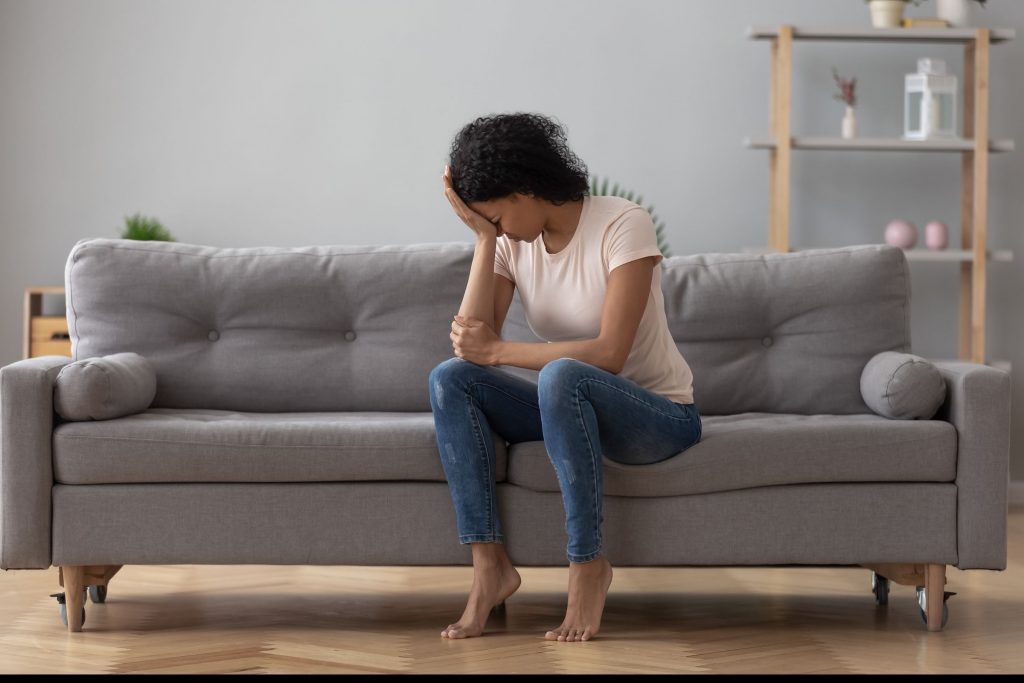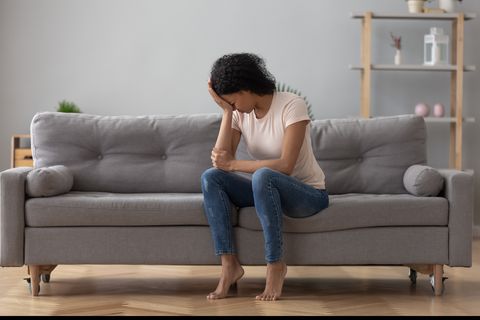Anxiety disorders can come in many different forms, and range from mild to severe. For some, anxiety can be generalised and hard to pinpoint a cause for, whereas for others it may be focussed on a specific issue (such as an irrational worry of falling ill, known as health anxiety). Some centre on a phobia (e.g. a fear of not being able to seek help if needed, known as agoraphobia) or socialising, too. Panic attacks or depression can also be an unpleasant side effect of having an anxiety disorder.
With the increased openness and reducing stigma around many mental health disorders, some have reported in the past that the diagnosis rate for anxiety has increased in recent years – however, this is contested. Some reliable recent statistics from the Mental Health Foundation show women are twice as likely to be diagnosed with it as men, and that in 2013, there were 8.2 million reported cases of anxiety disorder. Mind report that each week 6 in 100 people are diagnosed with Generalised Anxiety Disorder.
But what actually is anxiety (when referring to it as a mental health condition)? And how does it differ from being a natural ‘worrier’, or feeling nervous (which can be a normal human response to certain situations – such as before a job interview, or a date)? As, in theory, anything that has an element of the unknown could cause an anxious-type of feeling in response.
We asked Dr Mohamed Abedelghani, consultant psychiatrist and founder of Dyad Medical to explain the difference between normal nerves and worries, and having anxiety that would benefit from intervention and treatment.
What is anxiety?
To begin with, let’s take note of the fact that anxiety – or feeling anxious – can be a positive emotion in some instances, says Dr Abedelghani. In a nutshell, anxiety is what happens when your body reacts to a perceived fear and kicks into ‘flight or fight’ mode. “Anxiety is a natural human response to a perceived threat and in certain circumstances it can be useful in keeping us safe from certain people or situations,” he says. “Our fight or flight response kicks in, and as a consequence we can start feeling nervous or anxious.”
Continuing on, Dr Abedelghani explains, “It’s correct to assume that everyone has experienced anxiety one way or another, perhaps before an important exam or when dealing with a life threatening situation.” He adds that in these situations stress and anxiety could be beneficial as it’s believed the relationship between anxiety and performance can be understood by using a bell-shaped curve. “Meaning, if a person is extremely relaxed while dealing with an urgent situation their performance and productivity will be less than somebody who has a healthy level of stress (i.e. optimal stress level) that would allow them to get the job done.”
Other symptoms of an anxiety disorder, as well as feeling fearful, include:
- Physical responses (rapid heartbeat, sweating, dry mouth, aches and pains)
- Psychological responses (disturbed sleep, mind racing or going blank, poor memory)
- Behavioural responses (avoidance of situations or places, or behaviours such as going back to check you have locked the car/door etc)
When should you seek help for anxiety?
Anxiety starts becoming a problem when a person’s stress levels are so high (and continuously so) that it negatively affects their performance and ability to carry out their day to day activities, says Dr Abedelghani. “This is when you should seek professional help to understand the underlying reasons of your anxiety and explore different treatments that could help.” Treatments could include an array of therapies, or medication.
However, he’s keen to stress, before “jumping into formal treatments” it could be useful for all of us to integrate certain techniques and methods into our lives to reduced stressors, that if left unaddressed could lead to anxiety. “These techniques include -but aren’t limited to – daily exercise, meditation, healthy eating, good sleep hygiene, regular breaks and having quality protected time with friends and loved ones.”
This content is imported from {embed-name}. You may be able to find the same content in another format, or you may be able to find more information, at their web site.
Take into account the timescale and severity of your feelings too, says Dr Abedelghani: “It’s very important when thinking about anxiety to assess both the intensity and the frequency of the symptoms. For example, if someone has been feeling anxious every day for a fortnight they should seek professional help.” Again, the reasons behind the feeling are crucial to consider too. “If someone is feeling anxious every day with no specialist reason, they should seek professional help. Feeling anxious for no specific reason could be what we call Generalised Anxiety Disorder (GAD).” He advises booking an appointment with your GP to discuss the next steps. You can also complete a mood self-assessment on the NHS website.
If you’re worried about your doctor’s appointment, making notes of what you’ve been experiencing and how long for, to take in with you, can be helpful.
Cosmopolitan UK’s current issue is out now and you can SUBSCRIBE HERE.
Like this article? Sign up to our newsletter to get more articles like this delivered straight to your inbox.
This content is created and maintained by a third party, and imported onto this page to help users provide their email addresses. You may be able to find more information about this and similar content at piano.io


